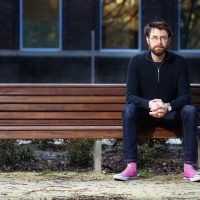There are differences between freedom of expression, freedom of the press, and academic freedom. But all three are crucial for the community of critical, independent thinkers that a university should be. It has been clear for a while now that the first two are under pressure at TU Delft. In fact, they were openly attacked (in Dutch). The third one is simply not being defended, it seems.
The Dean of Architecture and the Built Environment recently decided to cancel a gathering with presentations about the destruction of Gaza by researchers at his Faculty. There were ‘signals’ that the Faculty could not guarantee a ‘constructive and respectful dialogue’.
But the only concrete ‘signal’ that the Dean mentions is the tearing down of posters announcing the event. There were no substantive objections, apparently. So why was these researchers’ right to academic freedom relinquished so easily? The whole idea of a university is that it is a place that offers the safety to defend controversial claims. Even – especially! – when there is resistance.
Last year, the university responded in a similar fashion to the two Teach-Ins about Palestine. Strict conditions were imposed to prevent any unrest or visitors feeling unsafe. But nothing was done to safeguard the freedom and safety of the organisers themselves.
A freedom that is not defended does not exist
And this while even our Great Leader, when he declared that demonstrations and controversial statements do not belong on campus, could not avoid to at least pay lip service to academic freedom. Even he had to acknowledge that defending it is one of the core responsibilities of a university.
The organisers of the event at Architecture and the Built Environment wanted their gathering to go ahead in a modified form. Why was this not permitted? Why not at least do something like on Remembrance Day on the Dam in Amsterdam recently? Limit the amount of attendees. Require a campus card for entry. Make it clear that absolutely no breaches of academic norms of conduct will be tolerated.
TU Delft should have done everything in its power to enable this event to take place. After all, a freedom that is not defended does not exist. But freedoms also waste away if they are not practiced regularly.
This makes it problematic that there is hardly any critical debate at our university. If you want to be able, as a community, to carry out substantive and well-argued debates about sensitive topics in a respectful manner, then you must do so regularly.
It would be good if professors and others in higher positions in particular would publicly engage more often in discussions such as those about fossil funding, expanding to Rotterdam, and social safety. They have the luxury of being able to do so in relative safety. And by normalizing criticism and debate, they can enable those in more vulnerable positions to defend unpopular ideas.
The cancellation of the BK Scholars for Palestine event and the lack of justification for doing so should also be a subject of debate. Because again: academic freedom applies to everyone, or it does not exist.



Comments are closed.